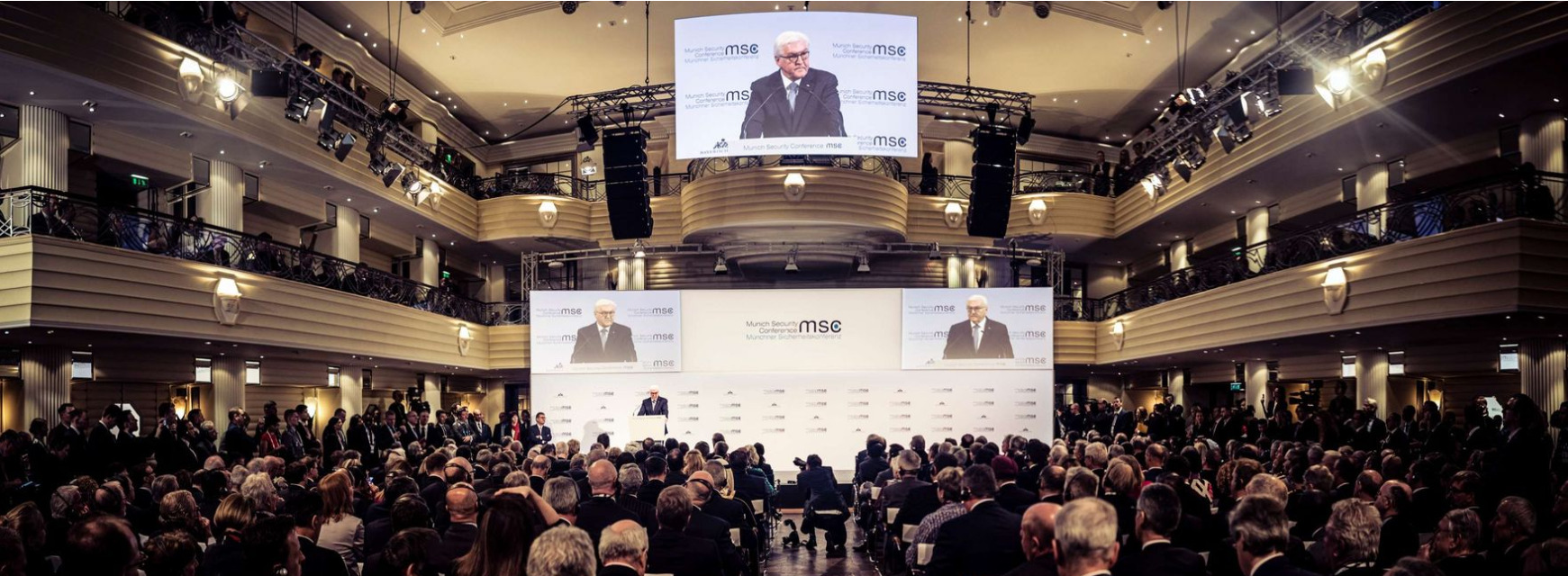
Introduction
The Munich Security Conference (MSC) is an annual conference on international security policy that has taken place in Munich since 1963. MSC is one of the most important unofficial forums for the exchange of views by presidents, prime ministers, foreign and defense ministers, and military chiefs on international security policy issues in an informal setting. This year’s conference was held from February 14 to 16 with the participation of hundreds of senior leaders and thinkers from politics, international organizations, business, and civil society [1].
For the last couple of years, a comprehensive report has been published prior to each conference that explains their main theme, and for the purpose of a “conversation starter” for the event. In this context, Munich Security Report 2020 bears the title of “Westlessness”[2]. According to the MSR website, the Report 2020;
“provides an overview of major security policy challenges and features insightful data and analyses across selected geographic and thematic spotlights” and “analyzes current security policy developments in China, Europe, Russia and the United States, and furthermore examines regional dynamics in the Mediterranean, the Middle East and South Asia. In addition, it provides insights into the issues of space and climate security, as well as into the threats arising from new technologies and increasingly transnational right-wing extremism.”
The report, while coining the term “westlessness”, states that there is a “Westlessness in the West” and explains this neology in the following way:
“Despite its widespread use as a shorthand for a community of mostly North American and European liberal democracies as well as a normative project, the ‘West’ is a concept that is not always easy to pin down. The ‘West’ has never been a monolithic concept but rather an amalgam of different traditions, the mix of which changed over time. Yet, for the past decades, the answer to the question what it was that kept the West together was straightforward: a commitment to liberal democracy and human rights, to a market-based economy, and to international cooperation in international institutions. Today, the meaning of the West is increasingly contested again. We are witnessing ‘the decay of ‘the West’ as a relatively cohesive geopolitical configuration … The contemporary ‘spiritual disunity of the West’ is due to the rise of an illiberal and nationalist camp within the Western world. For this increasingly vocal group, the West is not primarily a community bound by liberal-democratic values and open to everyone sharing these values. Rather, it is a community held together by ethnic, cultural, or religious criteria. Such an understanding of the West distinguishes itself from a liberal or ‘open’ understanding of the West. Proponents of this “closed” interpretation believe that the (white Christian) West today is threatened by ‘outsiders’ with different religious beliefs or cultural backgrounds. The proponents of this school of thought see Western societies as weak or even suicidal – undermining themselves by societal liberalization, the empowerment of women, and immigration. Their perception that the West is under attack paves the way for what they perceive as legitimate self-defense. In its moderate version, this school of thought calls for walls and borders, the rejection of refugees, or the opposition to political correctness and gender mainstreaming[3]”.
According to the MSC website, the Report poses the following questions regarding “westlessness" and explores the answers to these questions:
“Is the world becoming less Western? Is the West itself becoming less Western, too? What does it mean for the world if the West leaves the stage to others? What could a joint Western strategy for an era of great power competition look like?”
Answers of Germany and France to these questions
German Federal President Frank-Walter Steinmeier, in his comprehensive opening speech of the Conference criticized Russia and stated that;
“Russia, whether rightly or wrongly offended and alienated, not only annexed Crimea in total disregard of international law. It turned military force and the violent redrawing of borders on the European continent into political instruments again. The result is uncertainty and unpredictability, confrontation and lost trust [4]”.
Steinmeier referred to China and expressed the view that;
“China has become an important actor in the international institutions as well, becoming indispensable for the protection of global public goods. At the same time, it is selective in accepting international law only where it does not run counter to its own interests. Its actions in the South China Sea are unsettling the neighbours in the region. Its actions against minorities in the country disturb us all.”
As to Germany’s NATO ally the United States, Steinmeier stated that;
“our closest ally, the United States of America, rejects the very concept of an international community. Every country, it believes, should look after itself and put its own interests before all others. As if everyone thinking of himself meant that everyone is being considered. ‘Great again’ – even at the expense of neighbours and partners.”
Steinmeier denounced this approach and defended the traditional OSCE concept of “indivisible security”[5] with the following words:
“But that’s not entirely true. Thinking and acting this way hurts us all. Firstly, it casts us back to an age in which everyone sought to ensure his own security at the expense of others. In this scenario, the security of one is the insecurity of the other. We fall back into the classic security dilemma. The inevitable result: More mistrust, more armament, less security. Possibly even a new nuclear arms race that will produce not only more weapons, but above all more nuclear powers, with all the risks that entails for an already precarious nuclear stability. The nuclear bomb, however, is the great equalizer – big countries have as much to fear from it as small ones. In addition, there are countless conflicts which medium sized and small powers believe they can resolve themselves, where the large powers don’t take the rules so seriously anymore and no longer act as guarantors and guardians of order.”
Steinmeier stressed that “the idea of international community is not outmoded” and proposed to continue with the “efforts to create a supranational legal order”.
President Steinmeier, at the same time, in contrast to overly ambitious, egocentric, hegemonic approaches of certain European Union leaders, frankly admitted the concerns of the states that are in the neighborhood of crisis regions. From my perspective, his following remarks should be a guiding statement for the aforementioned EU leaders:
“For the first time in its history, Germany is surrounded solely by friends. That’s true. And it is a source of happiness. But happiness can also make one blind. That true sentence, dating from the early 1990s, has occasionally blinded us to the fact that our neighbours see the world differently from us, that they are closer to acute trouble spots than we are, that they feel an existential danger.
We Germans like to think of ourselves as the best Europeans. We tell ourselves that we are particularly generous towards our partners and that we do our utmost to take their interests into account. We also like to believe that we have learned the lessons of European history more thoroughly than anyone else. But when we look at the European Union today, what we see is economic divergence, not convergence. We see political, and increasingly also ideological, divides. Europe has not grown closer together. And the responsibility for that doesn’t lie only with everyone else.”
As to the answers of France to the above-mentioned questions, the French President Emmanuel Macron, reportedly “continued a theme of his presidency: projecting bold European sovereignty onto the international stage [6]”. We understand from various press reports that Macron brought to the fore this time the trump card of French nuclear assets and called for putting “France’s nuclear deterrence at the center of European defense strategy”[7]. Macron “refer[ed] specifically to Europe's nuclear assets, pointing out a key difference to the Cold War era when Europe's nuclear shield was primarily coordinated by the US” and said that "now we have to be able to say clearly that if we want a sovereign Europe, if we want to protect our citizens, then we do need to look at that aspect, also with a view to Germany".
What we understand from the foregoing is that after the exit of UK from the EU, France now considers itself as the sole nuclear power of the EU and seeks to use its nuclear arsenal to bolster its leadership in EU and Europe in collaboration with Germany. However, it seems from the opening statement of German Federal President Steinmeier that Germany does not fully agree with French President Macron and continues to pursue a balanced, prudent and rational policy in dealing with the challenges of international security order. It is possible to say that Germany has been playing an important role in restraining the ambitious French President in this context.
Answers of the US and NATO to these questions
In contrast to the criticisms coming from the European leaders and especially from Macron, the US Secretary of State Mike Pompeo, reportedly “glossed over differences between Washington and its European allies on issues such as Iran, China and trade” and emphasized that “the Western rules-based international order remains the best system for ensuring individuals rights and economic prosperity.” He also forcefully said that “I’m happy to report that the death of the transatlantic alliance is grossly over exaggerated. The West is winning, and we’re winning together” [8].
NATO Secretary General Jens Stoltenberg in his speech in the Conference underlined that “NATO is the ultimate expression of the ‘West’. He went on to say that;
“Europe cannot mean Europe alone. Any attempt to distance Europe from North America, not only weakens the transatlantic bond, and our ability to compete on the global stage, it also risks dividing Europe. I don’t believe in Europe alone. As I don’t believe in America alone. I believe in Europe and America together. So, we should not compete with ourselves. And talk up our differences”[9].
Is the rift really between the two sides of the Atlantic?
The Munich Security Conference 2020 displayed apparent cracks in the trans-Atlantic relations of leading EU countries such as France and to a certain degree Germany on the one hand and the US on the other. Although certain prominent news outlets portrayed this crack, in a shorthanded way, as a rift between the two sides of the Atlantic, the disagreements actually cannot be considered between Europe and the US. It is not possible to claim that certain pivotal members of the EU like Italy and Poland as well as the Baltic and certain East European EU countries entirely agree with the views expressed by France and Germany.
It is well known that France, as a dissident country in the NATO has had a historical on-and-off relationship with military alliance. France pulled out of NATO's integrated military structure in March 1966 in protest of US domination of security issues. A credible NATO source stresses that;
"French disenchantment with the U.S. began in October 1956, after the Suez debacle when the British and the French invaded Egypt, who captured the Suez Canal back from Nasser as part of a secret agreement with the Israelis, and the U.S. rather than support them, pulled the plug."
It is also additionally claimed that France was also;
"dissatisfied with the lack of American support when they had been trying to hang on to French Indochina in 1954 during the defeat of the French at Dien Bien Phu, in what today would be north Vietnam, with what they considered to be inadequate American support for their attempts to hang on to Algeria."
These points were made by Jamie Shea, then deputy assistant Secretary-General of NATO for Emerging Security Challenges in a video lecture back in March 2009[10].
It is quite remarkable for me that the Suez Canal issue was mentioned by the NATO Secretary General Jens Stoltenberg during the question-answer session of his statement in MSC. In response to a question by Bojan Pancevski (Germany Correspondent of the Wall Street Journal) on Macron’s views and transatlantic bond, Stoltenberg responded in the following way:
“I believe in the strength of North America and Europe working together … my message is that partly that we have seen differences before, dating back to the Suez Crisis in 1956 all the way to the Iraq War in 2003 … and we have seen that also the differences we have today, we have been able to deal with them when it comes to what we do on the security and defense arena … the reality is that, despite the disagreements we see on trade and climate change, and these are serious disagreements, actually the United States is now delivering more when it comes to European security [11]”.
It is clear that French President Macron is trying to scratch and deepen certain problems that can be addressed in NATO. NATO Secretary General Stoltenberg has made an important point and stated that NATO is the ultimate expression of the "West." This is, from my perspective, an important point that Turkey should always kept in mind. NATO is the most important anchor for Turkey in the "West". In this context, it is possible to say that the speech delivered by the NATO Secretary General in the MSC is a constructive speech that correctly analyzes the place of NATO in the “West”.
Conclusion
On 27 August 2019 during the Ambassadors Conference, Macron stated the following concerning the “hegemony” of world powers:
“We experience this world all together and you know that better than I, but the international order is being disrupted in an unprecedented way, with massive upheaval, probably for the first time in our history, in almost all areas and on a historic scale. Above all, a transformation, a geopolitical and strategic reconfiguration. We are probably in the process of experiencing the end of Western hegemony over the world. We were used to an international order that had been based on Western hegemony since the 18th century – probably French hegemony in the 18th century, inspired by the Enlightenment; probably British hegemony in the 19th century thanks to the Industrial Revolution, and American hegemony in the 20th century thanks to two major conflicts and the economic and political domination of that power. Things change. And they have been deeply affected by the mistakes made by Westerners in certain crises, by American decisions over the last several years which did not start with this administration, but have led us to re-examine certain involvements in conflicts in the Middle East and elsewhere…”[12].
We understand from these remarks that certain leaders unfortunately still dream of the old hegemonic days of colonial powers. They themselves accept that thing have changed. However, instead of accepting that this is the natural flow of history, they prefer to attribute this to the mistakes made by Westerners, and especially by Americans. They are searching for the scapegoats for their historic loss. This is nothing less than the searching for the new hegemonic world order. All developments point out that it is not possible to create such a world and go back to the hegemonic colonial system created by the countries like France. They criticize the US because they know that they cannot achieve such a dream without the help of the US.
Instead of hegemonic ambitions, the world needs a cooperative order based on rational constructive approaches. By rigorously maintaining well-established western values and by tightly anchoring in western organizations such as NATO, it is possible to develop beneficial relations with the East without sacrificing the national interests.
As the Center For Eurasian Studies (AVİM), within the framework of our studies on Eurasia, we have been bringing to the agenda the concept of “Constructive Eurasianism” since 2013. In this context, the “Constructive Eurasianism” concept rejects the understanding based on the search for an alternative to the “West” and instead of creating new rivalries and antagonisms in Eurasia, proposes for the creation of new avenues for cooperation through which Turkey (and likewise other western countries) can position themselves properly in a changing world. While staunchly defending Turkey's further integration with and entrenched position in the West, we, at the same time, underline the importance of developing a new relationship with the East[13]. There is no need to be so much distressed with losing the western hegemony in the world. Instead of trying to turn the clock back, we should proceed forward with creative thinking.
*Photo: https://securityconference.org
[1] “Westlessness – The Munich Security Conference 2020,” Munich Security Conference, February 16, 2020, https://securityconference.org/en/news/full/westlessness-the-munich-security-conference-2020/.
[2] “Munich Security Report 2020: Westlessness” (Munich Security Conference, February 20, 2020), https://securityconference.org/en/publications/munich-security-report-2020/.
[3] “Munich Security Report 2020: Westlessness,” 6–8.
[4] Frank-Walter Steinmeier, “Opening of the Munich Security Conference” (Munich, February 14, 2020), http://www.bundespraesident.de/SharedDocs/Reden/EN/Frank-Walter-Steinmeier/Reden/2020/02/200214-Munich-Security-Conference.html.
[5] In the OSCE context, indivisible security means the security of each state in OSCE region is inextricably linked with the security of every other state.
[6] Ben Knight, “Munich Security Conference: France’s Macron Envisions New Era of European Strength,” Deutsche Welle, February 15, 2020, sec. DW News, Munich Security Conference: France's Macron envisions new era of European strength.
[7] “NATO Chief Rejects Macron Call To Put French Nukes At Center Of European Strategy,” Radio Free Europe, February 16, 2020, https://www.rferl.org/a/nato-soltenberg-dismisses-macron-call-french-nuclear-deterrence/30436632.html.
[8] Michael Birnbaum, Loveday Morris, and John Hudson, “At Munich Security Conference, an Atlantic Divide: U.S. Boasting and European Unease,” Washington Post, February 15, 2020, sec. Europe, https://www.washingtonpost.com/world/europe/munich-security-conference-pompeo-europe/2020/02/15/ea9174d4-4c1b-11ea-967b-e074d302c7d4_story.html.
[9] Jens Stoltenberg, “Opening Remarks” (Munich, February 15, 2020), https://www.nato.int/cps/en/natohq/opinions_173709.htm.
[10] Teoman Ertuğrul Tulun, “Emmanuel Macron Agitates and Destabilizes Europe,” Daily Sabah, November 21, 2019, sec. Op-Ed, https://www.dailysabah.com/op-ed/2019/11/21/emmanuel-macron-agitates-and-destabilizes-europe.
[11] Stoltenberg, “Opening Remarks.”
[12] Emmanuel Macron, “Ambassadors’ Conference – Speech by M. Emmanuel Macron, President of the Republic” (Paris, August 27, 2019), https://lv.ambafrance.org/Ambassadors-conference-Speech-by-M-Emmanuel-Macron-President-of-the-Republic.
[13] Teoman Ertuğrul Tulun, “AVİM On The Eleventh Anniversary Of Its Founding,” February 5, 2020, sec. Commentary, 2020 / 5, https://avim.org.tr/en/Yorum/AVIM-ON-THE-ELEVENTH-ANNIVERSARY-OF-ITS-FOUNDING.
© 2009-2025 Center for Eurasian Studies (AVİM) All Rights Reserved
No comments yet.
-
 DISGUISED INITIATIVES ON NAGORNO-KARABAKH IN EUROPEAN PARLIAMENT
DISGUISED INITIATIVES ON NAGORNO-KARABAKH IN EUROPEAN PARLIAMENT
Teoman Ertuğrul TULUN 20.02.2018 -
 THE SPECTER OF RENEWED ARMED CONFLICTS IN THE BALKANS
THE SPECTER OF RENEWED ARMED CONFLICTS IN THE BALKANS
Teoman Ertuğrul TULUN 14.02.2017 -
 CENTURY OLD “WHITE SUPREMACISM” AND THE FAR-RIGHT’S RISE IN SWEDEN: A CREDIBLE CHALLENGE TO PROGRESSIVE VALUES AND POLICIES?
CENTURY OLD “WHITE SUPREMACISM” AND THE FAR-RIGHT’S RISE IN SWEDEN: A CREDIBLE CHALLENGE TO PROGRESSIVE VALUES AND POLICIES?
Teoman Ertuğrul TULUN 25.01.2018 -
 MUNICH SECURITY CONFERENCE 2020 REVEALS THE NECESSITY OF "CONSTRUCTIVE EURASIANISM"
MUNICH SECURITY CONFERENCE 2020 REVEALS THE NECESSITY OF "CONSTRUCTIVE EURASIANISM"
Teoman Ertuğrul TULUN 21.02.2020 -
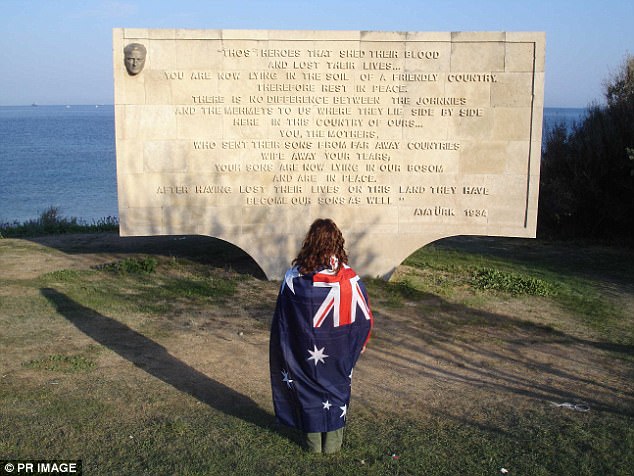 ANZAC DAY: “THERE IS NO DIFFERENCE BETWEEN THE JOHNNIES AND THE MEHMETS TO US WHERE THEY LIE SIDE BY SIDE” AT GALLIPOLI. IS THIS THE CASE FOR OTHER COUNTRIES?
ANZAC DAY: “THERE IS NO DIFFERENCE BETWEEN THE JOHNNIES AND THE MEHMETS TO US WHERE THEY LIE SIDE BY SIDE” AT GALLIPOLI. IS THIS THE CASE FOR OTHER COUNTRIES?
Teoman Ertuğrul TULUN 30.04.2019
-
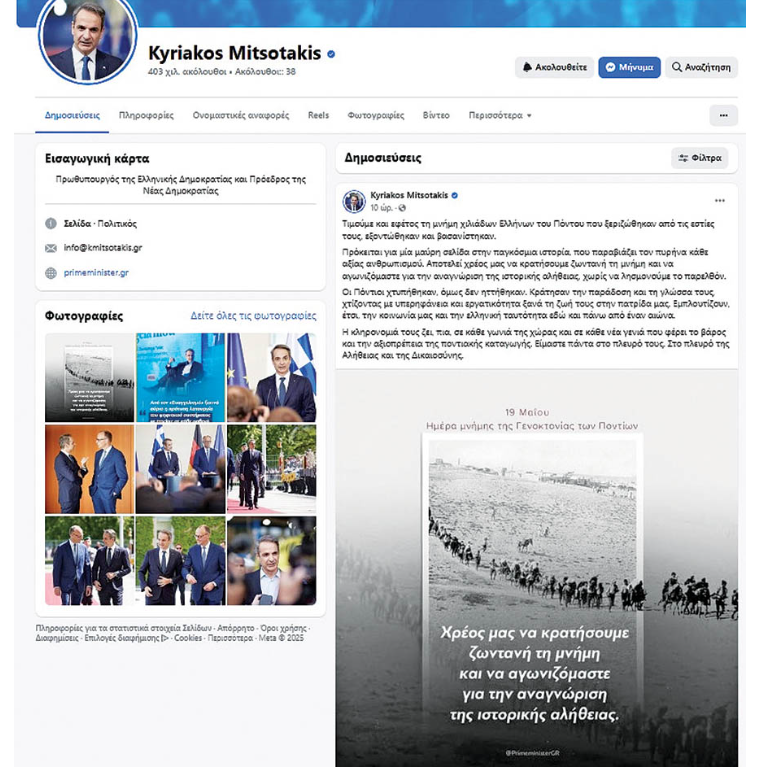 GREECE ATTEMPTS TO FORGE ANOTHER FRONT AGAINST TÜRKİYE WITH A PONTIC NARATIVE
GREECE ATTEMPTS TO FORGE ANOTHER FRONT AGAINST TÜRKİYE WITH A PONTIC NARATIVE
Teoman Ertuğrul TULUN 01.07.2025 -
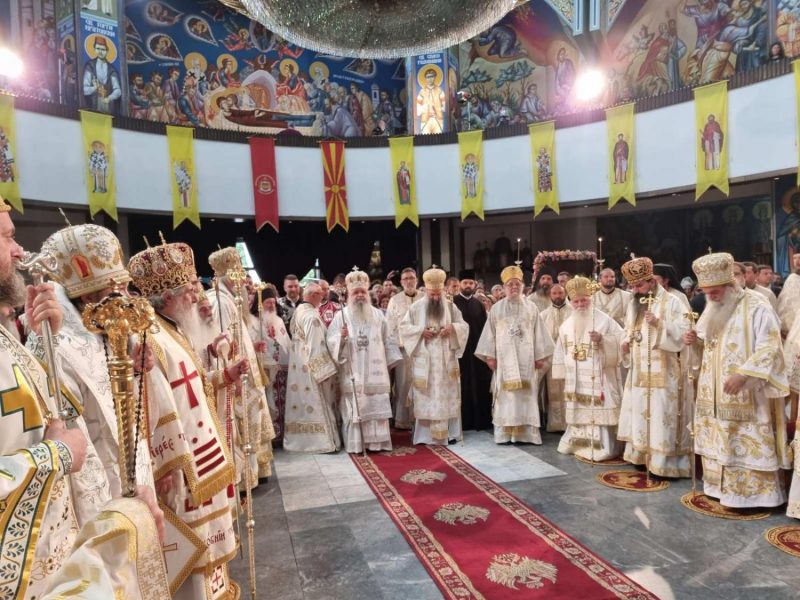 DESIGNING THE GEOGRAPHY OF RELIGION IN THE NEW WORLD ORDER: DIVISIONS IN ORTHODOXY
DESIGNING THE GEOGRAPHY OF RELIGION IN THE NEW WORLD ORDER: DIVISIONS IN ORTHODOXY
Gözde KILIÇ YAŞIN 10.06.2022 -
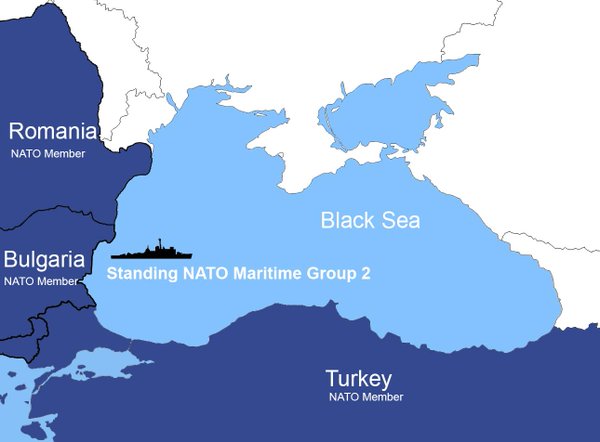 BLACK SEA, A POTENTIAL FRICTION VENUE BETWEEN RUSSIA AND THE WEST: TURKEY HOLDS THE KEY TO THE REGION
BLACK SEA, A POTENTIAL FRICTION VENUE BETWEEN RUSSIA AND THE WEST: TURKEY HOLDS THE KEY TO THE REGION
Teoman Ertuğrul TULUN 13.03.2017 -
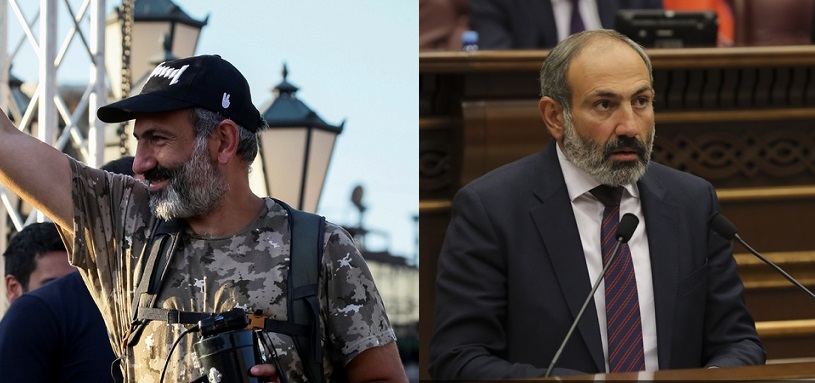 AN ANALYSIS OF THE POLITICS IN ARMENIA AFTER THE “VELVET REVOLUTION”
AN ANALYSIS OF THE POLITICS IN ARMENIA AFTER THE “VELVET REVOLUTION”
Turgut Kerem TUNCEL 01.06.2018 -
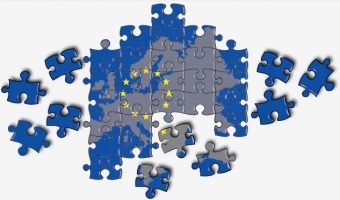 FROM A MISNOMER TO MISDESIGN: POSSIBLE EU CUL-DE-SAC IN BALKANS
FROM A MISNOMER TO MISDESIGN: POSSIBLE EU CUL-DE-SAC IN BALKANS
Teoman Ertuğrul TULUN 13.03.2018
-
25.01.2016
THE ARMENIAN QUESTION - BASIC KNOWLEDGE AND DOCUMENTATION -
12.06.2024
THE TRUTH WILL OUT -
27.03.2023
RADİKAL ERMENİ UNSURLARCA GERÇEKLEŞTİRİLEN MEZALİMLER VE VANDALİZM -
17.03.2023
PATRIOTISM PERVERTED -
23.02.2023
MEN ARE LIKE THAT -
03.02.2023
BAKÜ-TİFLİS-CEYHAN BORU HATTININ YAŞANAN TARİHİ -
16.12.2022
INTERNATIONAL SCHOLARS ON THE EVENTS OF 1915 -
07.12.2022
FAKE PHOTOS AND THE ARMENIAN PROPAGANDA -
07.12.2022
ERMENİ PROPAGANDASI VE SAHTE RESİMLER -
01.01.2022
A Letter From Japan - Strategically Mum: The Silence of the Armenians -
01.01.2022
Japonya'dan Bir Mektup - Stratejik Suskunluk: Ermenilerin Sessizliği -
03.06.2020
Anastas Mikoyan: Confessions of an Armenian Bolshevik -
08.04.2020
Sovyet Sonrası Ukrayna’da Devlet, Toplum ve Siyaset - Değişen Dinamikler, Dönüşen Kimlikler -
12.06.2018
Ermeni Sorunuyla İlgili İngiliz Belgeleri (1912-1923) - British Documents on Armenian Question (1912-1923) -
02.12.2016
Turkish-Russian Academics: A Historical Study on the Caucasus -
01.07.2016
Gürcistan'daki Müslüman Topluluklar: Azınlık Hakları, Kimlik, Siyaset -
10.03.2016
Armenian Diaspora: Diaspora, State and the Imagination of the Republic of Armenia -
24.01.2016
ERMENİ SORUNU - TEMEL BİLGİ VE BELGELER (2. BASKI)
-
AVİM Conference Hall 24.01.2023
CONFERENCE TITLED “HUNGARY’S PERSPECTIVES ON THE TURKIC WORLD"









